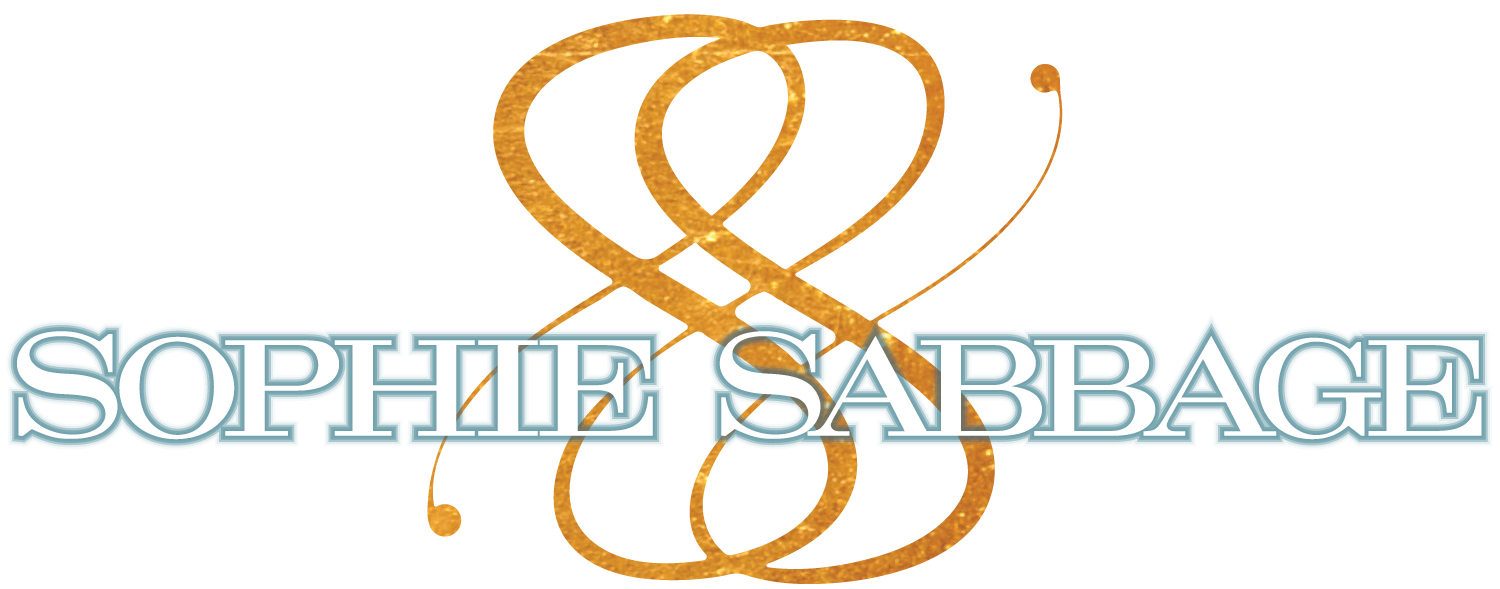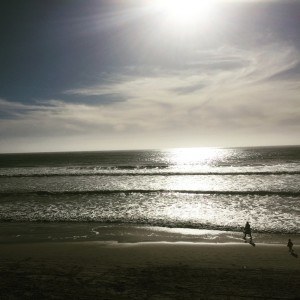Quantum Leap
The stronghold of cancer is fear. It arrives, announces your death (often with a date) and clamps itself to your ensuing panic like a baby to a billowing breast. This is part of what makes it so effective. It feeds on your conviction that your days are now numbered and the writing is on the wall. Your fear becomes its refuge and your stress its sustenance. It thrives on resignation and despair.
In those early weeks after my diagnosis I believe I started dying because I had been told I was going to die. It was almost immediate, as if the knowledge of having terminal cancer was more lethal than the fact that I’d had it, unwittingly, for some years.
As soon as I believed my life was nearly over it started dwindling at an alarming rate. Unable to see round the next corner in time, my future withered like a rose without sunlight.
There is no comparable feeling to your life force leaving your body. It is palpable and undeniable and almost impossible to resist. I remember it ebbing away for several weeks and, try as I might, I couldn’t stem the flow. I couldn’t shake the compelling narrative of my impending demise.
I am now convinced that the mental turn-around I eventually made was a vital precursor to the physical one I’m now experiencing. And harder in some ways. I needed to make a quantum mental leap from ‘incurable’ to ‘endurable’, ‘terminal’ to ‘transformational’, ‘game over’ to ‘game on’.
I am fortunate to be well trained in making significant shifts in perception. It’s what I was trained in and what I teach others to do. I am very familiar with the power of the mind and its immense influence on what we feel, how we behave and who we choose to become.
Yet, with all my years of experience in psychology and mindset transformation, this shift was an Everest compared to those I’ve made before – almost beyond my reach. I drew on all my well-honed skills and inner resources to salvage my life-force in a context that continually sought to convince me that the sun was setting on my days. It was like mining my soul for diamonds.
I wonder how many other patients struggle, as I did, to make this quantum mental leap when confronted with ‘the big C’. The word ‘cancer’ is a gun loaded with dense, ominous, terrifying meanings. When someone points it at you the meanings strike before the word itself: suffering, punishment, injustice, bad karma, debilitation, hair loss, dignity loss, loss of control, wretched vomiting, life lesson, incurable, battle, misery, fatal, protracted painful inevitable gruesome death.
You have two choices when standing in this firing line: buckle under the weight of all the carcinogenic beliefs about cancer or move to another country where cancer has no meaning other than the fact of its existence and the gifts it came to bestow.
One of the reasons I love coming to Mexico, where I am now, is because this mindset about cancer doesn’t permeate the culture as it seems to back home. I miss my family madly, but I receive something here that is even more valuable than the excellent treatments on offer, which I’m sure have contributed to my progress in recent months.
There is an attitude towards cancer that imbues everything and everyone at the Oasis of Hope hospital – doctors, patients, nurses, even the kitchen staff and maintenance men:
A lightness of being.
A strength of spirit.
An acceptance of the disease.
A willingness to befriend it.
A deep faith in its purpose.
A receptivity to its gifts.
A surprising joy in its presence.
A narrative of healing, humour and hope.
There are no victims here, or none that I’ve met. There are ordinary people at cause, not effect, with this disease. I made a friend on my first day here, a Columbian woman with ovarian cancer that spread to her colon. She has almost no hair and a colon bag following a colostomy. When I asked her what it was like to live with that, she beamed from ear to ear and said,
“It is nothing. I am alive!”
I had lunch with another woman today who was recently diagnosed with liver cancer that has metastasised to her lungs. I said, “Bless your heart” when she told me her story and she replied,
“No, bless my liver please!”
Cancer comrades on the journey together
I feel privileged to sit among these brave and beautiful human beings. I am not special here. I am one among. It is wonderfully leveling and normalising. It brings the reality that one in 2.5 people are now diagnosed with cancer right to my door. Most people here are late stage, yet imbued with vitality, courage and a peace that passes understanding.
It is so different to what I experience in oncology units at home where fear seems to stalk so many of the patients and gloom hovers over the waiting rooms like a thick fog. You can feel cancer suckling on people’s terror and parading round the hospital like a triumphant conqueror, scalps in its hands.
One of my oncologists at home is a lovely man, but cautious and understated, even about my recent brain scan. He was reticent to confirm that “no metastases were detected”, as if fear is the only rational response to cancer so he didn’t want mine to diminish in light of this result. If you’re afraid then you’ll make sensible choices and do as you’re told by your doctors. You won’t delude yourself with relief or excitement or hope.
A little later in the consultation he began to let slip that “the radiologist has seen a lot of these scans and said he’d never seen such a… well, er-hum, it was a profoundly good result Mrs Sabbage.”
I wonder what he feared would happen if he finished that sentence. Did he think I would convince myself a cure was possible if he admitted my result was unprecedented from the radiologist’s perspective? Was he questioning the outcome because the drug I take doesn’t normally work this well? Or was he simply waiting for the inevitable day when my oh-so-clever disease will reassert its dominance by storming my other organs or invading my brain again?
Still, I got a ‘profoundly’ out of him and that will do for now.
In direct contrast, the first doctor to read my scan reports at Oasis highlighted every piece of good news on the page in fluorescent yellow and tut-tutted about understatements like “a tumour (in my right lung) has shrunk slightly from 10mm to 5mm”.
“What do they mean, ‘slightly’?” he exclaimed. “It’s shrunk by half!”
On reaching the conclusion of my CT scan report (lungs and bones), he circled one word and said, “At last. An ‘excellent’. I thought they would never admit it.”
It was such a relief to see him react the same way my husband and I reacted when we read it. Better still was when he read, “no metastases were detected”. He stood up, walked round his desk and enveloped me in an unreserved bear hug.
Early evening on the beach in Tijuana
“Congratulations Sophie, this is amazing, wonderful, fabulous. I am so very very pleased for you. Well done. Well done indeed. I was afraid for you when you refused to take steroids because the brain is the hardest thing to clear of tumours, but with God’s grace you’ve done it. Please tell other patients of your success. Please spread the hope.”
What a breath of fresh air (especially to someone with late stage lung cancer). I didn’t just feel encouraged. I felt seen and respected as the master of my own destiny. He didn’t take the credit or give it to my other doctors. He gave it to me. And to my trusty partner on this journey: God.
It wasn’t until I got here that I began to really absorb my latest results. I was keeping a lid on the joy like a well-trained cancer patient and staying focused on the tumours that remain. But here I can have it without being reined in by caution. Here it can breathe. I can breathe. I can have my success-so-far instead of my work-still-to-do (while getting on and doing it). I can actually enjoy the life I’m trying to save.
There is a twenty-eight year old here with a secondary tumour in her lung. They can’t find the primary and it’s hard for her to not know its source, but she has taken the view that they can’t find it because it has already been healed. Her doctors are now taking that view too.
She is twenty years younger than me and participates in her treatment without fear or complaint. She sticks to the strict diet, handles her nausea with humour, lets her mother love her (we all have companions here) and focuses on the future she is determined to have.
Like so many other patients, who have tumours in all parts of their bodies, she is cancer-free. Free of the fear it feeds off. Free of the deadline it imposes. Free of the power it can wield over all your choices. Free of the perceived inevitability that marches us to our fate. You can be free of cancer even when full of cancer. Because that freedom is an attitude, a resolve, a way of being. It’s a state of mind.



